Supreme Court Hears Same-Sex Wedding Refusal Case
A graphic designer who refuses to create websites for same-sex couples is challenging Colorado's nondiscrimination law.

On Monday morning, the U.S. Supreme Court began hearing oral arguments in the case of a graphic designer who refuses to create custom-made wedding websites for same-sex couples who is seeking a decision exempting her from abiding by Colorado’s nondiscrimination law.
The designer, Lorie Smith, claims that her Christian religious beliefs prevent her from providing her services to same-sex couples. She also claims that because of those beliefs, she requires an exemption from the Colorado Anti-Discrimination Act, which prohibits discriminating against same-sex couples in public accommodations or businesses that offer themselves and their services as open to the public.
The case, also known as 303 Creative LLC v. Elenis, seeks to resolve the questions left unanswered by the Supreme Court’s decision in the Masterpiece Cakeshop v. Colorado Civil Rights Commission case from 2018, in which the high court determined that the Colorado Civil Rights Commission had exhibited anti-religious bias when it refused to take the baker’s concerns about violating his religious beliefs seriously.
However, while the court decided that there should be some type of exemption for business owners with sincere religious objections, it declined to elaborate on what types of exemptions should be offered, under which circumstances they should be offered, and how those religious exemptions can be balanced with state laws prohibiting discrimination against LGBTQ people.
LGBTQ advocates and their allies, including the Biden administration, the American Civil Liberties Union, and a host of civil rights and liberal-leaning religious organizations, argue that granting Smith an exemption will allow a host of businesses to discriminate against LGBTQ people, same-sex couples, and others, including interracial and interfaith couples. Some even fear that the court could go further than granting the type of religious exemption Smith is seeking, and strike down all state-level nondiscrimination laws as invalid.
In September 2019, a federal district judge ruled against Smith, finding that her proposal to post a statement outlining her objection to promoting same-sex weddings would be unlawful because it violates the Anti-Discrimination Act. Smith appealed that decision, but the 10th U.S. Circuit Court of Appeals ruled 2-1 against her in July of last year, finding that businesses that open themselves up to the public must provide similar services to all individuals they serve. The majority also ruled that there was “no less intrusive means” of ensuring that LGBTQ couples are not discriminated against — which is a legitimate interest that Colorado’s government has chosen to pursue by approving and enforcing the nondiscrimination law.
Smith’s lawyers, with Alliance Defending Freedom, claim that their client will gladly work with LGBTQ clients for non-wedding-related websites, but simply objects to creating wedding websites for same-sex couples, arguing that the creation of such sites communicates a message of implied “support” for same-sex unions. As such, Smith’s legal team argues, forcing her to serve same-sex couples also compels her to communicate a message that runs counter to her beliefs.
“Free speech is for everyone. No one should be forced to say something they don’t believe,” Kristen Waggoner, the general counsel for Alliance Defending Freedom, said in a statement. “And Lorie works with everyone. Whether she custom-designs a website or graphic, it always turns on what the message is, not who is requesting it.
“Like most graphic designers, every word she writes, every graphic she designs, and every custom website she crafts expresses a unique message — one that must be consistent with her beliefs, areas of passion, and personal expertise,” Waggoner added. Americans should be free to express their ideas even if the government disagrees with them. That’s true for Lorie just as much as the LGBT graphic designer, which is why a win for Lorie is a win for all Americans.”
Twenty liberal states have signed onto an amicus brief opposing Smith’s request for an exemption, while 20 other Republican-led states have signed onto a brief supporting Smith, reports The Associated Press.
The case comes before the court on the heels of a Senate vote in favor of a bill that seeks to ensure the federal government recognizes same-sex marriages, and interracial marriages, that were legally performed in states without constitutional amendments or statutes banning the practice.
LGBTQ groups expressed concern over the high court’s decision to hear the case, especially given the hostility that the six conservative members of the court have expressed towards the LGBTQ community, either on the bench or prior to being confirmed to the court. Such groups have also argued that granting exemptions will undermine the purpose of LGBTQ-inclusive nondiscrimination laws.
“If business is open on main street, it must be open to everyone, regardless of who they are or whom they love. At its core, this case is a cynical effort to manipulate the First Amendment in order to provide a license to discriminate against LGBTQ+ people and our families,” Sarah Warbelow, the legal director of the Human Rights Campaign, said in a statement.
“Granting the unprecedented ‘free speech exemption’ sought by petitioners in 303 Creative v. Elenis would be a dangerous change to long standing constitutional and civil rights law,” Warbelow added. “It would inevitably lead to increased discrimination not only related to LGBTQ+ people or weddings, but also for other vulnerable populations including women, people with disabilities, and people of minority faiths. It’s crucial that justices of the Supreme Court reject discrimination and affirm the equal dignity of every American.”
DignityUSA, an organization representing LGBTQ Catholics, which signed onto an amicus brief opposing Smith’s request for an exemption, expressed concern over how the court might rule in the case.
“The possibility that businesses may be able to discriminate against LGBTQIA+ people is chilling to us. We are very concerned that the Supreme Court may use inappropriate definition of religious liberty and free speech to make it harder for members of our community to access services,” Marianne Duddy-Burke, DignityUSA’s executive director said in a statement. “As people of faith, we believe that everyone should be treated equally. Everyone should have the same protections under the law. It’s that simple.”
Support Metro Weekly’s Journalism
These are challenging times for news organizations. And yet it’s crucial we stay active and provide vital resources and information to both our local readers and the world. So won’t you please take a moment and consider supporting Metro Weekly with a membership? For as little as $5 a month, you can help ensure Metro Weekly magazine and MetroWeekly.com remain free, viable resources as we provide the best, most diverse, culturally-resonant LGBTQ coverage in both the D.C. region and around the world. Memberships come with exclusive perks and discounts, your own personal digital delivery of each week’s magazine (and an archive), access to our Member's Lounge when it launches this fall, and exclusive members-only items like Metro Weekly Membership Mugs and Tote Bags! Check out all our membership levels here and please join us today!










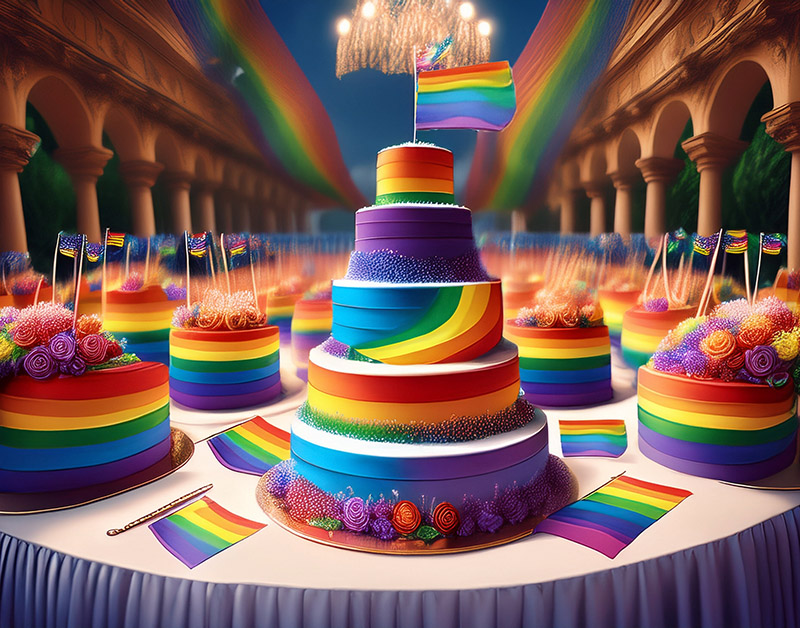
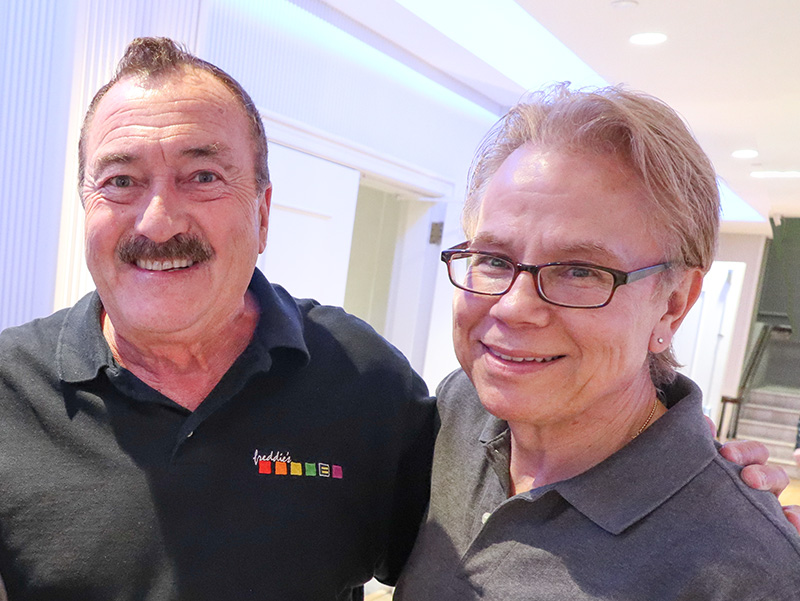
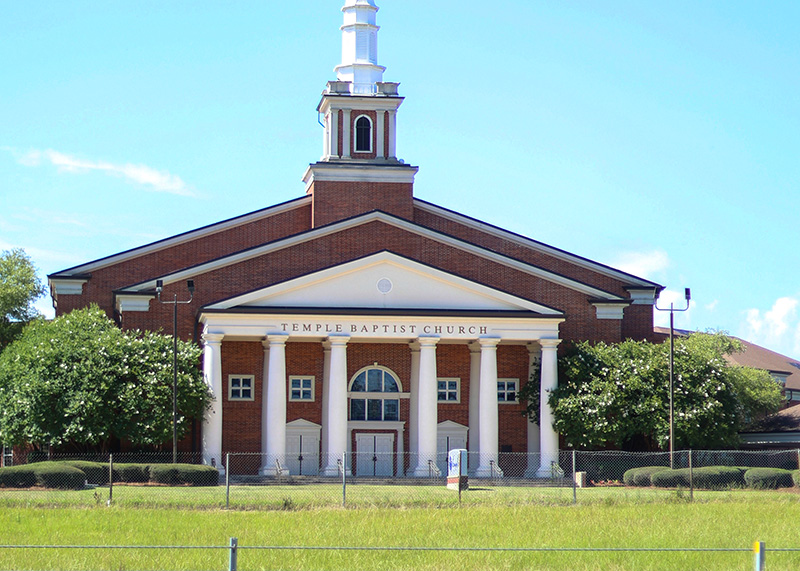













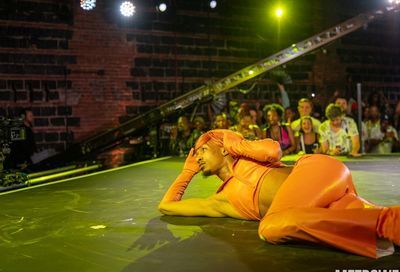
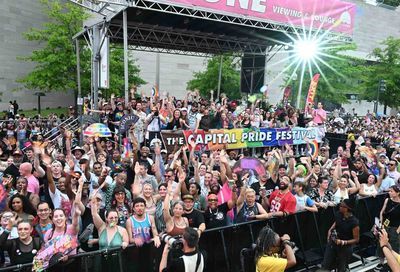

You must be logged in to post a comment.